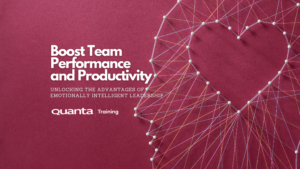Equip yourself with the skills to lead and implement powerful process improvement initiatives using Lean and Six Sigma methodologies.
The Lean Six Sigma Green Belt course empowers professionals with the knowledge and tools to improve processes, reduce waste, and enhance quality within their organisations. Green Belts play a vital role in leading improvement projects using the DMAIC (Define, Measure, Analyze, Improve, Control) methodology.Book a Private Event
If you require the content of this event tailored or have around 7 or more people to train it maybe better for you to host a Private Event, please get in touch to discuss this.
Get in touchDescription
Who is this course for
- Professionals working in operations, quality, process improvement, or service delivery.
- Individuals responsible for or aspiring to lead improvement initiatives.
- Team leaders, project managers, engineers, and analysts who want to gain structured problem-solving skills.
Purpose of the course
To develop skilled professionals who can independently lead improvement projects, contribute to strategic change, and apply Lean Six Sigma techniques to enhance customer satisfaction, process efficiency, and overall business performance.
You will learn how to
- Understand and apply the Lean and Six Sigma philosophies and principles.
- Use DMAIC to structure and manage improvement projects.
- Identify and eliminate waste, reduce process variation, and improve quality.
- Map, measure, and analyze processes to identify opportunities for improvement.
- Use data-driven decision-making with statistical tools and quality management methods.
- Lead change and manage stakeholder engagement effectively.
- Support cultural and operational transformation within your organisation.
Prerequisites
While previous completion of a Lean Six Sigma Yellow Belt course is recommended, it is not mandatory. Learners should have a basic understanding of business processes and problem-solving techniques. Comfort with using Microsoft Excel or similar tools for basic data analysis is beneficial, as statistical interpretation is an important component of the training.Benefits for you as an individual
Completing this Green Belt course will provide you with a highly transferable skillset that enhances your career prospects. You'll gain the confidence and competence to lead data-driven change initiatives and make a measurable impact in your role. The training also develops your analytical thinking, leadership capabilities, and project management skills—all of which are highly valued in today's competitive job market.
Benefits for your organisation
Organisations benefit significantly from having trained Green Belts who can lead continuous improvement initiatives. These professionals help reduce operational costs, improve service and product quality, and enhance customer satisfaction. Lean Six Sigma also fosters a culture of efficiency, innovation, and employee empowerment—ultimately driving long-term strategic success.
Module 1: Introduction to Lean Six Sigma
- History and evolution of Lean and Six Sigma
- Continuous Improvement mindset
- Belt roles and responsibilities
Module 2: Voice of the Customer (VOC)
- CTQ (Critical to Quality)
- Kano model
- CTQ Flowdown
Module 3: Strategy and Policy Deployment
- Vision, True North and Strategic Alignment
- Cost of Poor Quality (COPQ)
- Managing change and stakeholder engagement
Module 4: Project Management and DMAIC Framework
- Project selection and scoping
- DMAIC roadmap
- Project Charter development
- Tollgate reviews and governance
Module 5: Workplace and Process Foundations
- 5S and visual management
- Standardised work (SOPs)
- Quality Management Systems (QMS)
- Training Within Industry (TWI)
Module 6: Performance and Daily Management
- Daily stand-up meetings and Obeya rooms
- Kaizen events and root cause analysis
- Basic Quality Tools (Ishikawa, Pareto, 5-Whys)
Module 7: Define & Measure Phases
- Process mapping (SIPOC, Flowcharts, Swimlanes)
- Performance metrics (Time, Quality, WIP)
- Basic statistics and data collection
- Descriptive statistics and data types
Module 8: Analyze & Improve Phases
- Value Stream Mapping (Current State and Future State)
- Types of Waste: Muda, Muri, Mura
- Work balancing and flow
- Kanban, FIFO, Theory of Constraints
- SMED and quick changeover
Module 9: Control Phase
- First Time Right and Poka Yoke
- Process FMEA and Control Plans
- TPM (Total Productive Maintenance)
- Sustaining improvements and capability building
Module 10: Capable and Future-Proof Processes
- Advanced process maturity and sustainability models
- Embedding Lean Six Sigma into business strategy
Additional Exam Information
This course prepares you for the official LSSA Lean Six Sigma Green Belt Certification Exam, which includes both a theoretical and practical component.The theoretical exam
- Taken as part of the course
- Multiple-choice format
- 60 questions per paper
- 38 marks required to pass (out of 60 available) - 63%
- Duration: 180 minutes
- Open book: a maximum of any two books is permitted during the exam + statistical tables booklet (14 page PDF). Exercise books are NOT permitted during the exam.
- Calculators and Minitab are permitted
Pre-Coursework
Several hours of pre-course preparation is required. The Pre Course book will be shipped out 4-6 weeks prior to the course.Please note, there may be a small amount of evening work to complete such as further reading or working though sample exam papers.
Get Started
Forget trawling through endless course catalogues – Find the training that’s right for you
Learn MoreLatest from our blog
Kanban and Agile: Bridging the Gap
Kanban and Agile: Bridging the Gap Quanta’s Kanban University Certified Trainer Steve Church explores the way in which Agile and…
Read More
How a Ballerina could move into Cybersecurity
Jason Ford, Quanta Cybersecurity and IT Trainer talks about the limitations in Cybersecurity Training courses. Jason discusses a safe and…
Read More
Boost Team Performance and Productivity: Unlocking the Advantages of Emotionally Intelligent Leadership
Quanta People Development and Leadership Trainer, Giles Collins outlines the key elements of Emotionally Intelligent Leadership and how it impacts…
Read More





